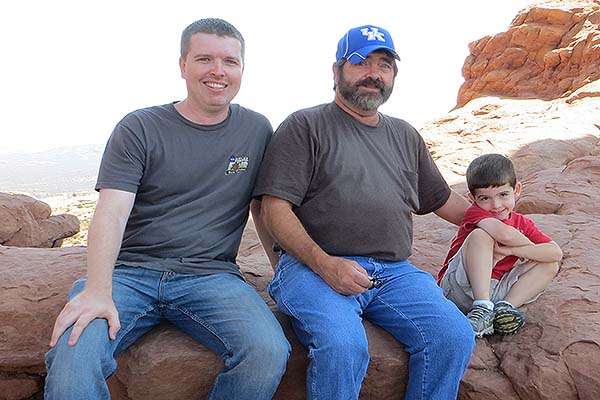Posts Tagged ‘Coal’
Touring Coal Country’s Past
By Molly Moore In 1978, student Doug Estepp was poking around in the West Virginia University library when he came across a newspaper headline describing the 1920 Matewan shootout — a violent episode in the dispute between coal companies and pro-union miners. Although Estepp grew up near Matewan in Mingo County, W.Va., it was the…
Read MoreVirginia Tech Student Works to Keep Campus Green
By Nolen Nychay For Virginia Tech student Nneka Sobers, environmental activism is more than an interest — it is a passion that empowers her to promote positive change wherever she goes. Sobers became involved with her university’s Student Environmental Coalition early in her college career, eventually becoming a liaison for the student body’s environmental interests…
Read MoreInvestigation Finds Fraud in Black Lung Cases
By Kimber Ray A year-long investigation revealed evidence this fall that the coal industry has supported fraudulent practices in order to block workers’ compensation claims for black lung disease. According to the investigation conducted by The Center for Public Integrity and ABC News, it appears that officials at prestigious medical institutions including Johns Hopkins Hospital…
Read MoreTennessee Valley Authority Announces Major Coal Cutbacks
By Brian Sewell After more than 50 years of supplying most of its power plants with coal, the Tennessee Valley Authority announced it will idle 3,308 megawatts of capacity at eight coal units in Kentucky and Alabama — approximately half of its coal-based generation. Citing market factors, declining demand and stricter environmental rules, board members…
Read MoreOn the Right Side of the Law
By Molly Moore From the gallery of the Kentucky State Capitol, lawyer Wes Addington and a group of women from eastern Kentucky — mostly widows of coal miners — watched the Kentucky House pass a bill expanding legal and safety protections for state miners. The women had advocated tirelessly in support of the law, and…
Read MoreEPA decision on toxic mining waste leaves Kentuckians, other Appalachians at risk
Resources EPA Approval Letter Selenium Fact Sheet Read more on our blog Contact: Erin Savage, Water Quality Specialist, 828-262-1500, erin@appvoices.org Cat McCue, Communications Director, 434-293-6373, cat@appvoices.org Washington DC – The U.S. Environmental Protection Agency today approved Kentucky’s changes to how the state measures selenium, a toxic pollutant discharged from many mountaintop removal coal mines. Even…
Read MoreAppalachia’s Contested History
By Bill Kovarik It has been 50 years since Harry Caudill wrote “Night Comes to the Cumberlands,” a landmark history that rejected stereotypes of Appalachian people as backward hillbillies and described the ruthless exploitation they suffered. The book spoke with eloquence to the American conscience and set off a firestorm of controversy. Within a year,…
Read MoreFederal Court Orders EPA to Move Forward on Coal Ash Regulations
FOR IMMEDIATE RELEASE Washington, D.C. – A federal judge agreed with environmental and public health groups that the Environmental Protection Agency needs to set federal regulations for the safe and proper disposal of toxic coal ash. A copy of the judge’s order can be found here: http://earthjustice.org/sites/default/files/files/RCRA_NOI_Order.pdf The groups filed the lawsuit in April 2012…
Read MoreInterview with Tom Perriello
Tom Perriello, a lifelong resident of Ablemarle County, Va., is a steadfast supporter of environmental and poverty concerns. He used his background in law to prosecute warlords in West Africa, was named one of Time Magazine’s “40 under 40” in 2010, and represented Virginia’s 5th district from 2009 to 2011. While in Congress, he supported…
Read MoreClimate Action Plan has Major Implications for Coal
By Brian Sewell In late June, President Obama announced his administration’s climate action plan. The speech at Georgetown University signaled to Congress that the president was keeping his promise to come up with executive actions to address the threat of climate change, and reignited claims of a “war on coal” in Central Appalachia and nationwide.…
Read More

